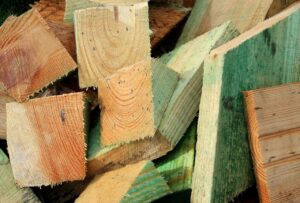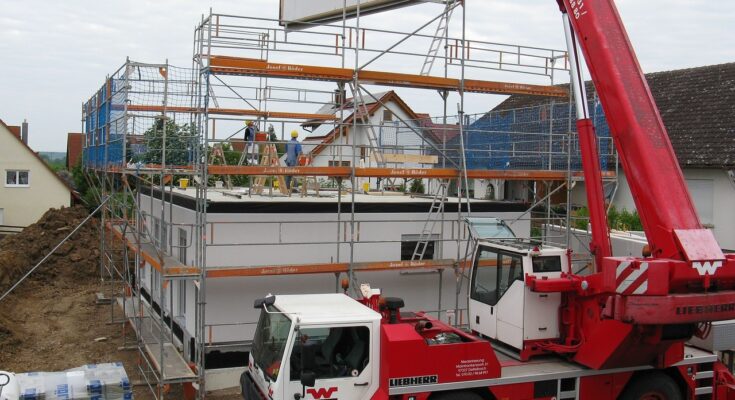Everyone aspires to construct their dream home, where they envision themselves living for the rest of their lives. However, despite the allure of personalizing every aspect of the house, choosing the right materials remains one of the most crucial decisions. The selection of materials will determine the exterior and interior design, the ability of the house to insulate temperature, ease of maintenance, and, most importantly, the cost of constructing the new home.
Why Materials Matter
The materials you use to construct your home determine its external and internal beauty. They co-impact the structural framework of your house, its insulation, and the future expense of maintenance and repairs. To a certain extent, your range of options for your home materials will decide the comfort level, decorative motifs, and durability—the choice is, therefore, crucial.
Issues to Consider While Selecting Material
When selecting materials for your custom home build, there are several factors to keep in mind:
Climate and Weather Conditions
Consider the climate and weather conditions in the area where you plan to build your home. However, materials such as brick, stone, or concrete may be more appropriate depending on the geo-climatic location and exposure to heavy rainfall. Thermal insulators for cold climates include double-glazed windows, foam board insulation, concrete blocks, or other insulating materials. On the other hand, in warm, weathered climates, materials that allow the building to cool itself, such as white roofs and wooden walls that breathe, are cheaper to maintain.
Durability and maintenance
Durability is always an essential factor or consideration when choosing building materials. Using an enduring material in the existing construction will be more cost-effective than frequently replacing it. Such materials as brick, steel, and concrete are durable; they do not heat or fade quickly and do not need repainting or replacement frequently. If you prefer a more natural look, there is nothing quite like the long-lasting value you get from hardwood floors, stone countertops, or ceramic tiles. However, they may require periodic maintenance. For those who prefer less maintenance, composite or pre-painted wood products can achieve the same effect.
Aesthetic Appeal
Our custom homes are unique in how they portray their owners. Therefore, materials must possess specific attributes that align with the design vision of your space. Wood brings a cosier and more classic mood, while metal, such as steel or copper, will make your house seem more futuristic. Stone and bricks will give a rustic or more traditional look, while glass treatments will provide a modern or industrial look. Make an aesthetic choice that harmonizes with the surroundings and complements the other furniture in the house. If you’re unsure which style to choose, consult an architect or interior designer.
Energy Efficiency
As energy costs continue to spike, it is relevant to include energy efficiency in a house. Optimum insulation materials reduce heat loss or gain, decreasing heating and cooling costs and the environmental impact. Insulated concrete forms, ICF, spray foam insulation, and high-performance windows are appropriate for moderating internal temperature. Also, anything that goes with passive solar heating or cooling can improve energy efficiency.
Budget Restrictions
Constraints will always affect your budget when choosing what material to use. There are expensive and cheap options for the consumer: natural stone, hardwood, and custom-designed finishes cost a lot more, while engineered woods, vinyl, and stucco may be slightly cheaper. Couples should also blend expensive and affordable materials to reduce costs and improve the outlook and efficiency of the furnishing. In agreement with your contractor, you can eliminate unnecessary additions without sacrificing quality.
Safety and Health
Other factors to consider go beyond appearance and utility; the health of the inhabitants of the home needs to be considered. Some articles, such as lead-based paints or untreated wooden articles, also contain risks. The new construction materials are not toxic and have enhanced mold, pest, and fire resistance. Please ensure your chosen materials provide a safe living environment, ensuring your custom home is aesthetically pleasing and secure.
Commonly Used Materials in Custom Home Builds
Wood
Wood is one of the most traditional and promising facade and interior materials. We extensively use it for framing, cladding, panelling, and flooring, as it provides insulation and texture. But one disadvantage is that it needs constant maintenance, especially to avoid rot, pests, and adverse weather.

Concrete
Concrete is a strong, durable, and energy-efficient construction material. Mostly, we use it to lay down the floor slab, walls, and building foundation. Concrete offers a design advantage because it can take on various forms and surfaces.
Brick
At a glance, Brick Brick is a timeless design. It’s incredibly sturdy. It is heat-resistant, simple to maintain, and provides excellent insulation, thus making it helpful for exterior walls and fireplaces.
Steel
Beams and frames frequently use steel, a strong material. It’s also fire resistant and robust.” However, it might require an additional layer of insulation depending on the need for energy efficiency.
Stone
Natural stones like granite, limestone, and slate make any custom home look more sophisticated. Countertops, flooring, and exteriors typically feature natural stones, offering durability and beauty.
Glass
Glass has become popular in most modern designs, especially windows and doors. It admits natural light into the interior space, enhancing a feeling of openness in the home’s layout. However, insulation and shading are necessary to prevent heat loss through walls.
Consulting with professionals.
In choosing materials for your custom home build, you, your architect, your builder, and any interior designers collaborate. These specialists can help you select appropriate materials because they already have specific knowledge and do not have unreasonable expectations of the costs. They can give professional advice on suitable materials for that particular area, your chosen style, and your needs in your home.
Conclusion
Choosing the right materials for constructing your custom home is one of the most important decisions you will face. These choices define your home’s appearance, thermal performance, and sustainability. It is, therefore, essential to decide which aspect of a building to cover based on climate, budget, and sustainability, with the goal in mind. When you incorporate the right material, your custom home will be durable, fulfilling your dreams.
Also read about: Double Bed: The Perfect Sleeping Atmosphere




One Comment on “Choosing Right Materials for Your Home”